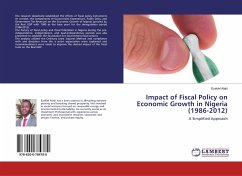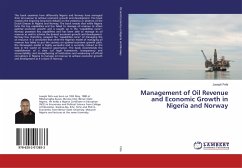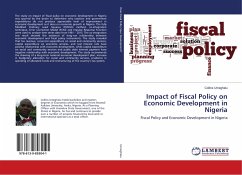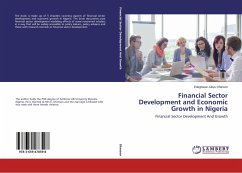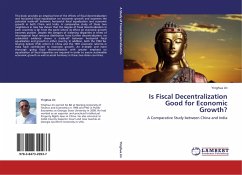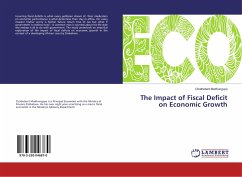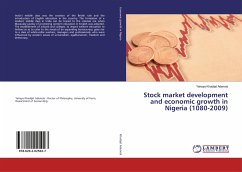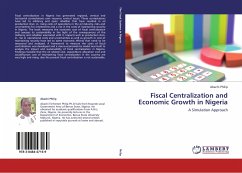
Fiscal Centralization and Economic Growth in Nigeria
A Simulation Approach
Versandkostenfrei!
Versandfertig in 6-10 Tagen
45,99 €
inkl. MwSt.

PAYBACK Punkte
23 °P sammeln!
Fiscal centralization in Nigeria has generated regional, vertical and horizontal contestations over resource control issues. These contestations have led to militancy and open rebellion that have resulted in oil production shut- in, rising costs of operations in the oil industry, risks and uncertainties for investments and a rise in the costs of maintaining security in Nigeria. The book measures the economic cost of fiscal centralization and assesses its sustainability in the light of the consequences of the militancy and rebellion associated with it. Impacts such as production shut-in, rise i...
Fiscal centralization in Nigeria has generated regional, vertical and horizontal contestations over resource control issues. These contestations have led to militancy and open rebellion that have resulted in oil production shut- in, rising costs of operations in the oil industry, risks and uncertainties for investments and a rise in the costs of maintaining security in Nigeria. The book measures the economic cost of fiscal centralization and assesses its sustainability in the light of the consequences of the militancy and rebellion associated with it. Impacts such as production shut-in, rise in operational costs and uncertainties as well as growth in cost of maintaining security have led to some economic effects that need to be measured and analyzed. A framework to measure the costs of fiscal centralization was developed and a macro-econometrics model was built to analyze the impact and sustainability of fiscal centralization in Nigeria. Findings revealed that the oil related cost, expenditure allocation cost and social/human cost of maintaining fiscal centralization in the country are very high and rising, also the present fiscal centralization is not sustainable.



